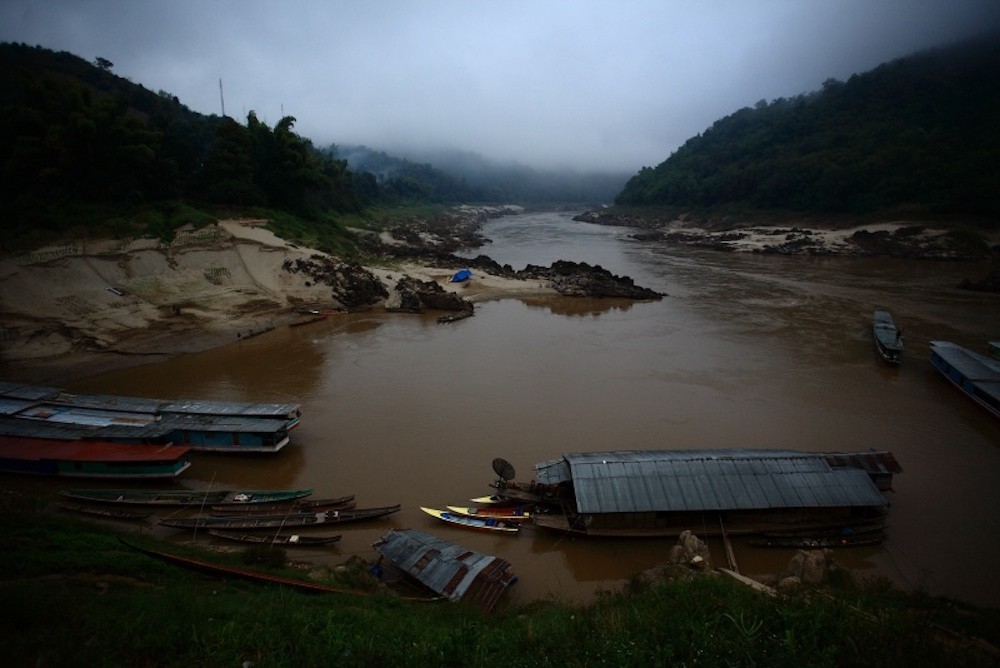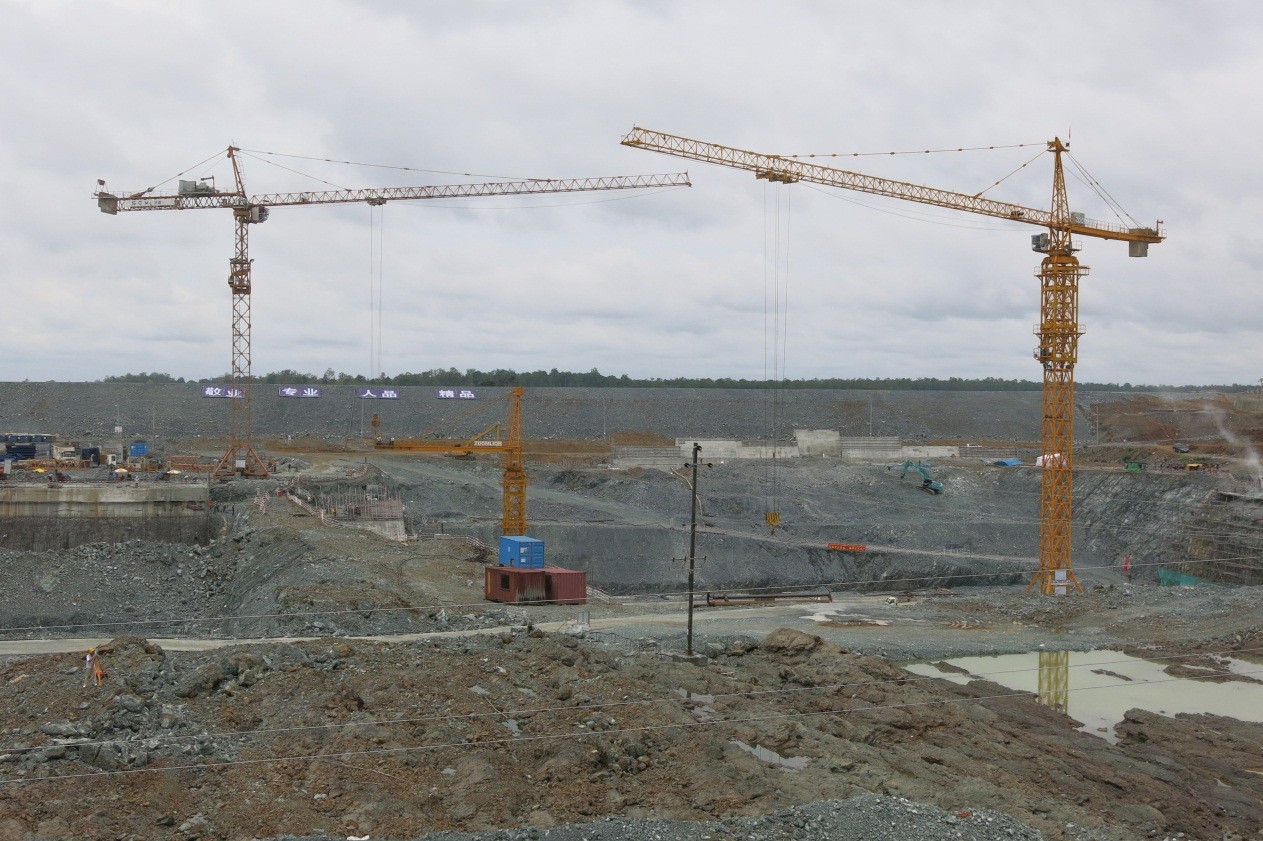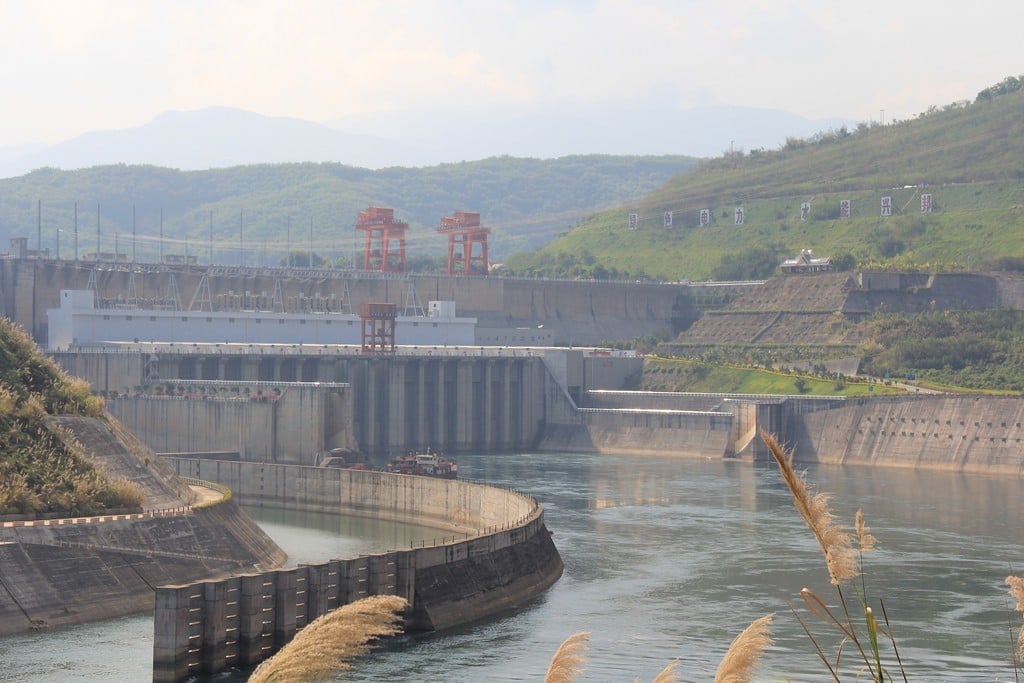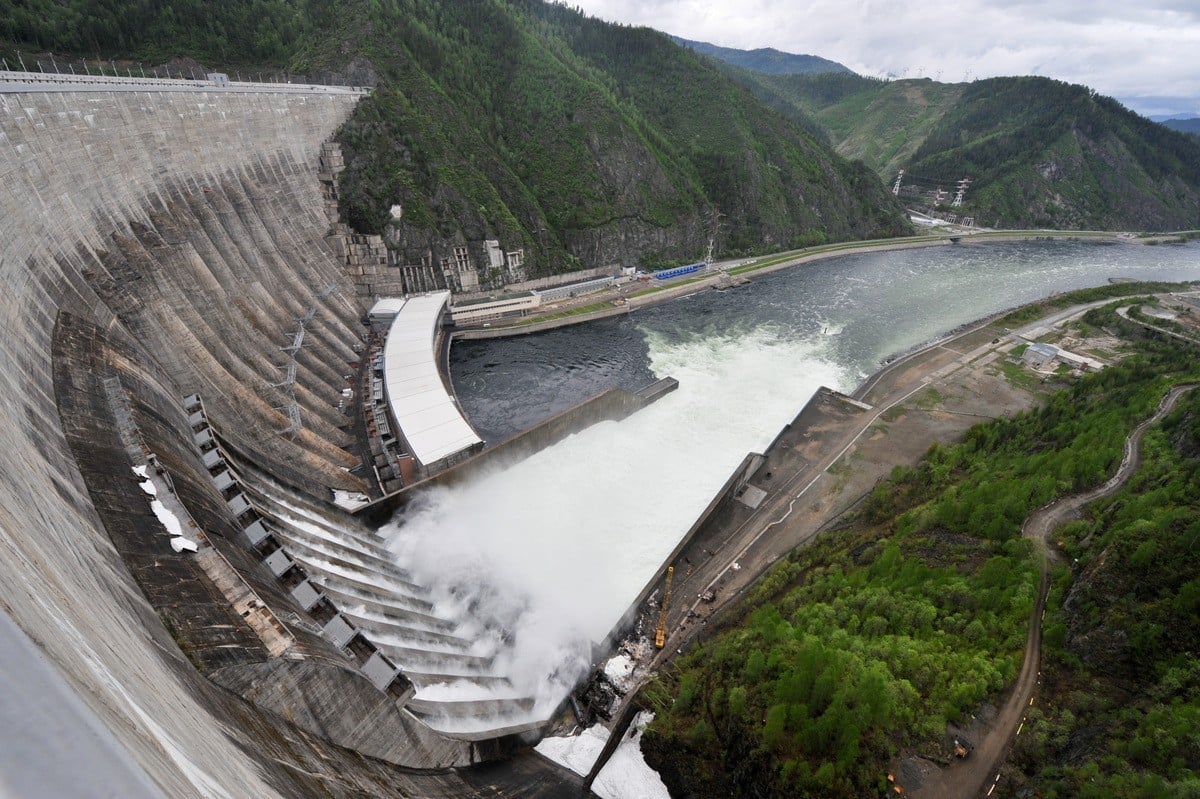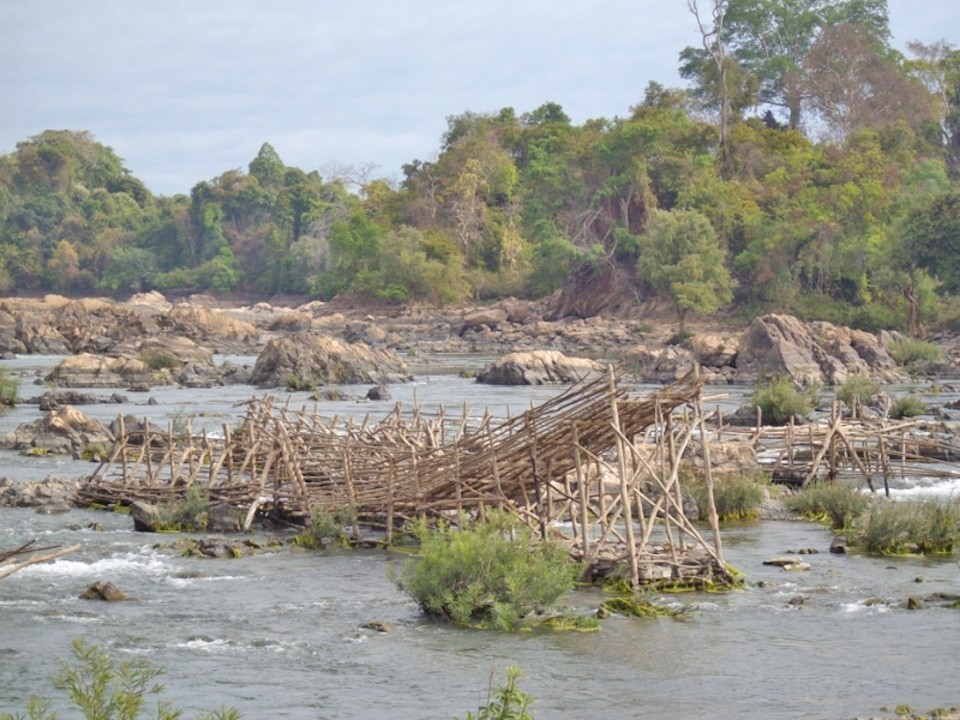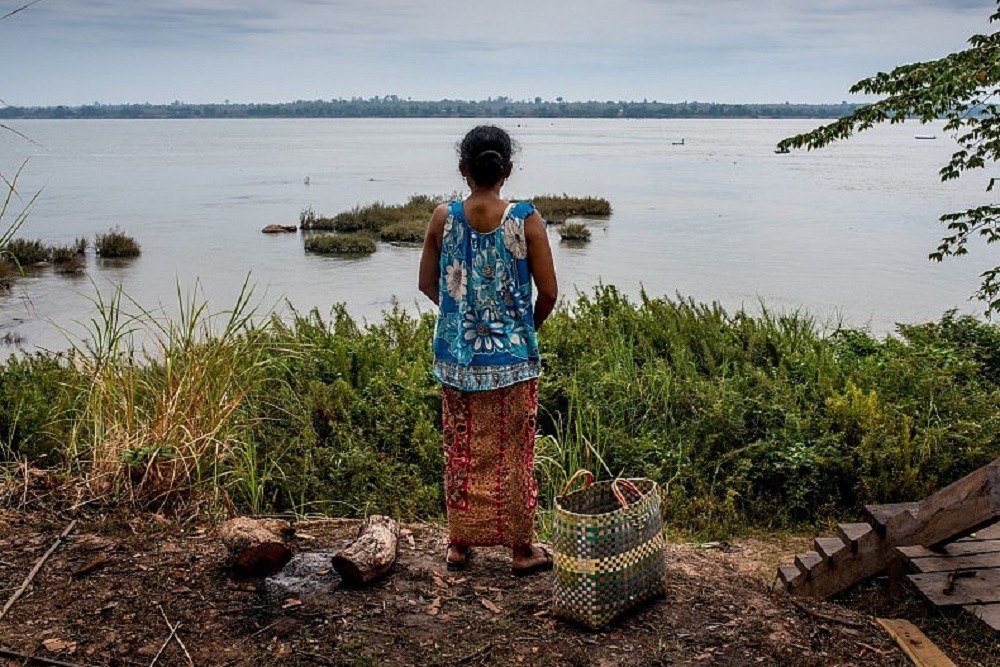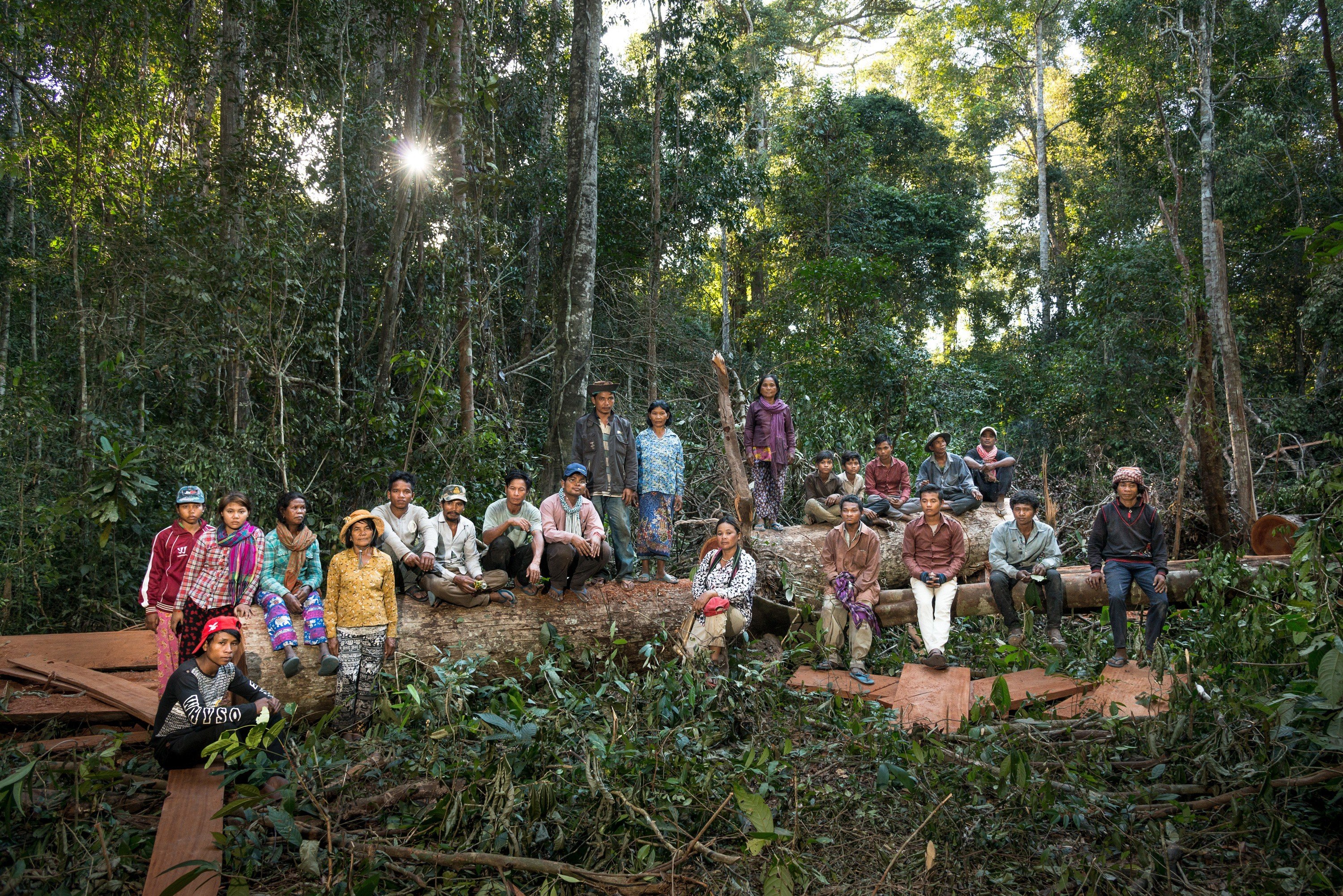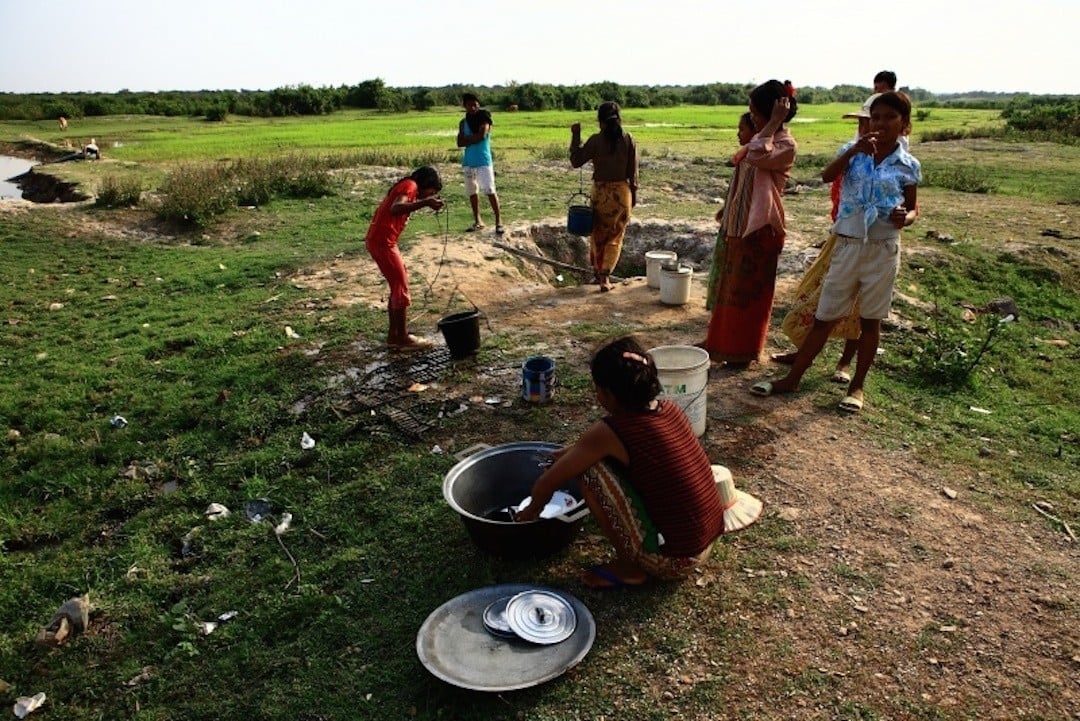Again?” Chai Tamuen, 42, thought when he saw Mekong water rising at the riverbank of Chiang Khan district in Loei eight days ago.
Overnight, water had engulfed the sandy shore of Kaeng Khut Khu, a tourist spot popular for swimming and recreation, leaving stalls stranded on an “island” now surrounded by water.
As a vendor, Mr Chai was forced to leave his kiosk four days later when water submerged half of the island.
“This is not the first time that the bank has been flooded in dry season. It’s happened like this for the last five years,” he said.
“We can’t predict water. Our income has not been stable since Chinese dams have taken control over the water upstream.”
China announced on March 14 it would discharge a massive quantity of water from one of its dams, claiming it would help communities in the Mekong region facing severe drought.


